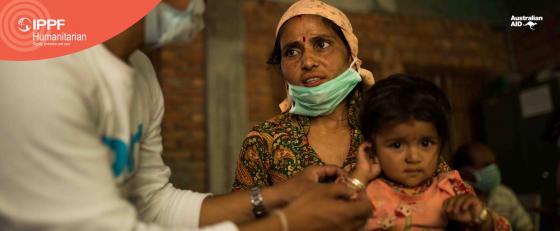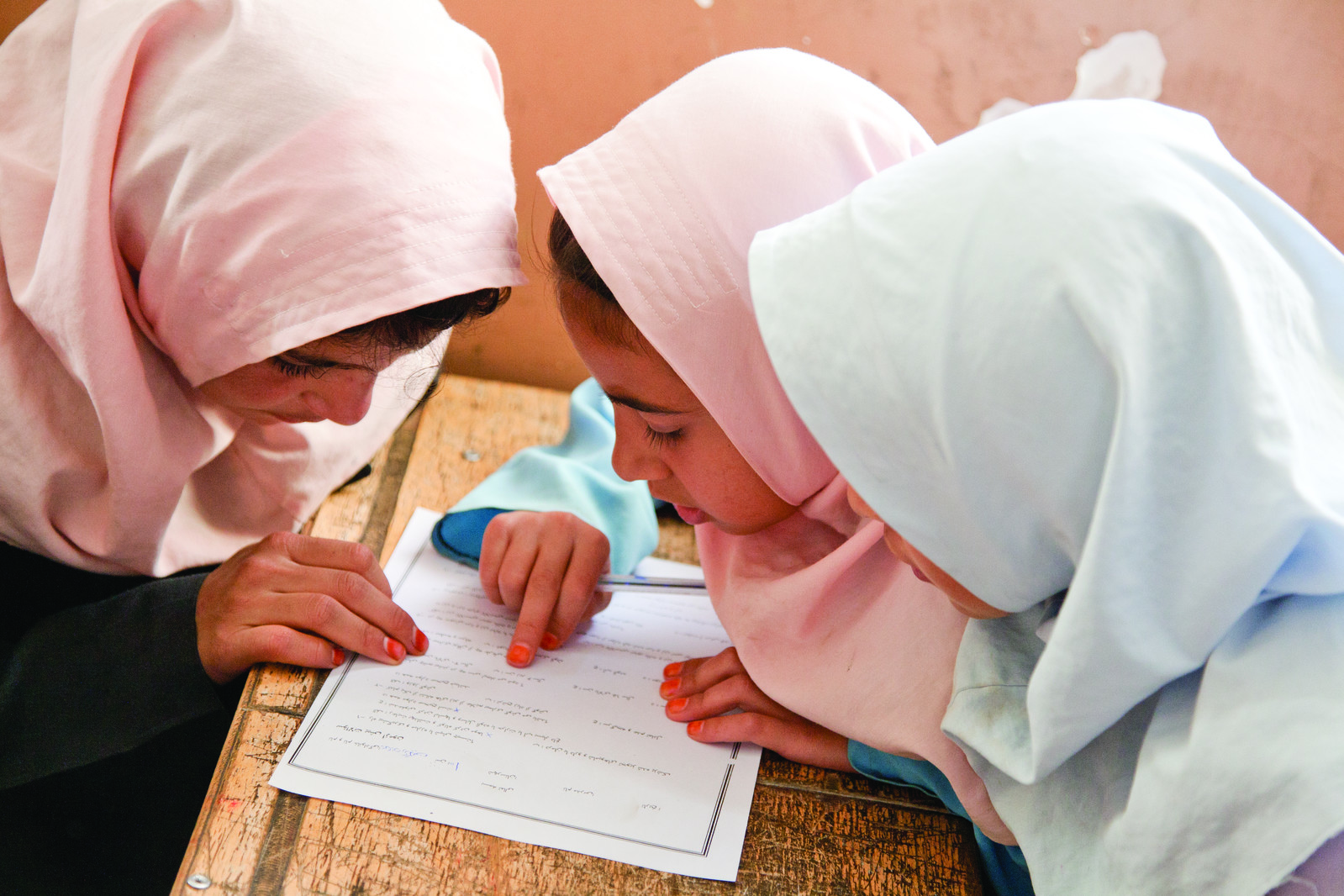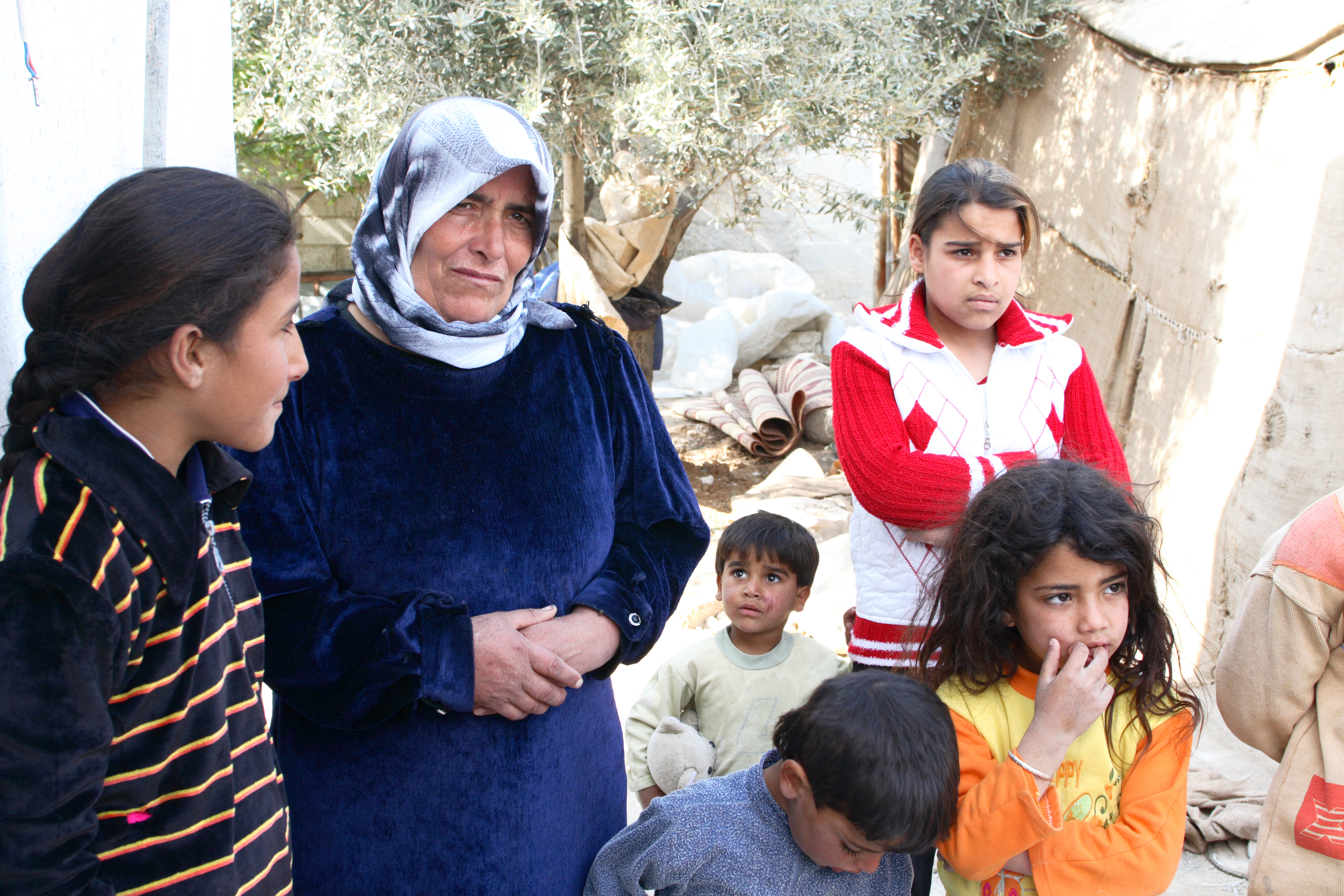
| 13 February 2017
IPPF celebrates the launch of humanitarian initiative: SPRINT 3
Melbourne, February 8, 2017 – The International Planned Parenthood Federation (IPPF) is proud to launch the latest phase of the SPRINT initiative, delivered through IPPF’s new, dedicated global humanitarian platform, IPPF Humanitarian. Together, they are thought to be the single largest humanitarian effort worldwide exclusively focused on sexual and reproductive health and rights in crises. Commencing in 2007 and now in its third phase, the SPRINT initiative continues to be generously supported by the Australian Government. Running from 2017 to 2019, Phase 3 of SPRINT will enable IPPF to reach communities affected by natural disasters – particularly in the Asia Pacific region. Very welcome announcement made today by @JulieBishopMP at #AAC2017 of $9.5m for sexual and reproductive health during crises via @ippf — ACFID (@ACFID) February 14, 2017 Sexual and reproductive health and rights in emergencies are too often overlooked and under-funded. When left ignored, women and girls in crisis situations are particularly vulnerable and face numerous health and psychosocial risks. At any given time, one in five women in a crisis may be pregnant, whilst over 500 women and girls die daily in conflict and fragile states from complications related to pregnancy and childbirth. Thank you @IPPF DG Tewodros Melesse for inspiring words on how reproductive health saves lives & helps #womenandgirls globally #SRHR pic.twitter.com/rFCGsIiDgy — Jamie Isbister (@AusHumanitarian) February 14, 2017 The SPRINT initiative addresses this situation by ensuring access to high-quality care through the Minimum Initial Service Package for Reproductive Health, an internationally recognised standard. IPPF and its Member Associations work to support national governments of disaster-prone countries to be ready when disaster strikes, and more able to respond and recover. IPPF’s Director General, Mr. Tewodros Melesse, has welcomed the launch of SPRINT 3 and the official opening of the new IPPF Humanitarian Hub in Bangkok, Thailand and Sub-Hub in Suva, Fiji. “IPPF praises the ongoing support and leadership of the Australian Government and the generosity of the Australian people in prioritising this critical and under-funded element of humanitarian response. IPPF is immensely grateful for the opportunity to continue its long-standing partnership with the Australian Government, together ensuring that women and girls in crises can access life-saving sexual and reproductive health care when they need it most.” Press Contact Johanna Wicks, Chief – Australia and New Zealand Office, IPPF Email: [email protected] Phone: (+61) 3 8459 2185

| 15 December 2016
Japan and IPPF take actions together for realizing society where every woman shines
14 December 2016, Tokyo - IPPF attended the World Assembly of Women (WAW!) 2016, which was held in Tokyo on 13-14 December, and made a case that Sexual and Reproductive Health and Rights (SRHR) is fundamental for women’s empowerment, and universal health coverage cannot be achieved without universal reproductive health coverage. At the WAW conference, Japan’s Prime Minister Mr Shinzo Abe said women’s voices are not prioritised in crisis. The international community was not allowed to leave the issue of sexual violence under crisis, he added. Mr Abe stressed that under crisis situations, the international response will be improved remarkably if women’s perspectives are fully incorporated into it. At the same time it is matter of life and death to improve maternal and child health. The international community needs to take action on these issues and give hope to people affected, to build a future together. Tewodros Melesse, Director General of IPPF, said: ‘Poor is the women whose happiness depends on the approval of others. From birth, every women has rights to shine. A comprehensive approach, where empowered women make their own decisions, is the key to ensuring no woman is left behind’ Tewodros Melesse also had a meeting with H.E. Mr Odawara, Japan’s Parliamentary Vice Minister of Foreign Affairs. Mr Odawara said that the Japanese Government highly appreciated IPPF’s activities to respond to women’s needs by closely working with Japan. Mr Melesse raised the issue of global uncertainty, which could give a serious impact on IPPF’s activities to protect women’s health, rights and lives, and requested Japan’s further assistance and continuing strong leadership in the SRHR area.

| 16 September 2016
Letter from Tewodros Melesse: "Ask for sexual and reproductive rights for refugees and migrants"
Dear friends, colleagues and partners, As September 19th, the date for United Nations Summit on Refugees and Migrants, approaches we can’t help but to continue to be overwhelmed by the rising number of refugees across the globe and their growing needs. It has become clear that the global community will have to take strong, committed and focused actions in order to ensure that the needs of those vulnerable populations are met. Children, the elderly and women are the ones most at risk in these perilous situations. We need to ensure that their specific needs do not go unnoticed. During this year’s World Humanitarian Summit in Istanbul, UN Member States, civil society and other stakeholders made commitments to increase their support in emergency situations. The Summit on Refugees and Migrants presents another unique opportunity for Member States to show resilient support. In the final draft of the Summit’s outcome document great strides were made in ensuring women’s rights and needs were addressed. Through strong advocacy efforts from IPPF UN Liaison Office, United Nations agencies and strong Member State commitment we were able to secure language that is a great step forward in access to sexual and reproductive health services. Specifically, thanks to our work, the declaration promises to: “…ensure that our responses to large movements of refugees and migrants mainstream a gender perspective, promote gender equality and the empowerment of all women and girls, and fully respect and protect the human rights of women and girls. We will combat sexual and gender-based violence to the greatest extent possible. We will provide access to sexual and reproductive health-care services...” The necessity for sexual and reproductive health and rights in humanitarian situations is critical. We, therefore, ask you to include in your national statements during the Summit on Refugees and Migrants Summit, the unequivocal requirement for the sexual and reproductive rights of refugee and migrant women to be fulfilled and that sexual and reproductive health services be systematically included in the refugee crisis response. I thank you in advance for the attention given to this very important matter and hope to count on you to support this key action. Together, we can make a difference in women’s lives, and bring to those that have lost everything a little bit of hope for the future. Yours Sincerely, Tewodros Melesse

| 06 September 2016
IPPF responds to the launch of UNESCO’s Global Education Monitoring Report
IPPF welcomes UNESCO’s 2016 Global Education Monitoring Report (GEMR) launched today, which sheds stark light on how off track we are in meeting education targets adopted as part of the Sustainable Development Goals (SDGs) only a year ago. Education is a powerful tool to empower girls and is considered a key pathway to future employment and earning. Educated women are more likely to marry later, use family planning and access health care; and to understand their rights and have the self-confidence to act on them.[1] Each additional year of schooling for girls improves their employment prospects, increases future earnings by about 10 per cent and reduces infant mortality by up to 10 per cent.[2] IPPF notes that the GEMR affirms comprehensive sexuality education “as one of the most pressing and universal priorities for the health, well-being and development of young people”. IPPF’s own programmes and research support the central role of CSE in delivering better outcomes for young people [3]; programmes delivered in schools, paired with accessible youth-friendly health services, have been shown to be not only cost-effective, but also cost saving for governments.[4] Evidence shows that education not only plays an important role in preventing negative sexual and reproductive health outcomes, but can also promote gender equality and human rights. There is convincing evidence for governments to invest in CSE that includes a focus on gender, rights and empowerment. Even though there has been progress, with many countries adopting sound policies and scaling up there programming of CSE, implementation is often nowhere near good enough and does not always reach young people who are not in school. As the GEMR shows, measuring progress towards countries’ implementation of CSE is not adequate and initiatives to monitor national implementation of programmes must address the tension between national values and commitment to a global agenda. SDG target 4.7[5] introduces education for global citizenship and sustainable development, explicitly linking education to other Sustainable Development Goals (SDGs), highlighting the transformative aspirations of the new global development agenda. Part of this aspiration must include enabling young people to realize their rights, by challenging and changing social norms, by empowering them, and allowing them to make informed choices about their health. The GEMR launched today sends a loud and clear message to governments around the world. Business as usual will not suffice. In order to respond to the growing education and health gaps that are disproportionately affecting the most marginalized young people across the world, IPPF urges governments to implement high quality sustainable CSE programmes that encompass information and education about sexual and reproductive health, gender, rights and empowerment principles, and that encourage critical thinking in young people. Only then will a transformative development agenda be possible. Read more about IPPF’s position on CSE in our latest policy report: [1] USAID. Op. cit.; United Nations Millennium Project Task Force on Gender Equality (2005) Taking Action: Achieving Gender Equality and Empowering Women. This contributes to their social empowerment and status: Eyben R (2011) Supporting Pathways of Women’s Empowerment: A Brief Guide for International Development Organisations. Pathways Policy Paper. Brighton: Pathways of Women’s Empowerment. [2] World Bank (2002) Opening Doors: Education and the World Bank. Available at Accessed 14 January 2015. [3] IPPF (2016) Everyone’s right to know: delivering comprehensive sexuality education for all young people. [4] UNESCO (2011) Cost and Cost-effectiveness Analysis of School-based Sexuality Education Programmes in Six Countries. Geneva: United Nations Educational, Scientific and Cultural Organization. [5] Target 4.7 states ‘By 2030, ensure that all learners acquire the knowledge and skills needed to promote sustainable development, including, among others, through education for sustainable development and sustainable lifestyles, human rights, gender equality, promotion of a culture of peace and non-violence, global citizenship and appreciation of cultural diversity and of culture’s contribution to sustainable development.’

| 17 June 2016
IPPF responds to Grand Bargain on Humanitarian commitments
Matthew Lindley, IPPF Humanitarian Transition Lead, comments on the Grand Bargain commitments from the World Humanitarian Summit. “There is no denying that sexual and gender-based violence, unwanted pregnancies, early and forced marriage, trafficking, sexually transmitted infections (including HIV), maternal morbidity and death increase in humanitarian situations. Any humanitarian effort needs to take a long view as the average time that people may be displaced or in camp can be a staggering 20 years. That is enough time for a woman to get pregnant, have a child and for a child to reach adolescence. The current humanitarian system has failed women and girls time after time, year after year. As traditional humanitarian funding and organizations largely concentrate on food, shelter, WASH (Water, Sanitation and Hygiene), livelihoods, nutrition and public health but not on sexual and reproductive health and rights as a lifesaving concern. The Grand Bargain is a welcomed move towards a vision where a comprehensive and collaborative approach is taken to save lives and with greater investment. Yet while there have been many discussions at the Summit around how women and girls and young people are particularly at risk and quite simply not able to access basic services, we have not seen this translated within the document. There is still no clear commitment to this area for core funding at all. We need to see more commitment to this area with core humanitarian funding for comprehensive sexual and reproductive health services as a matter of priority if humanitarian efforts are truly going to ensure that no one is left behind. “

| 24 May 2016
Global call for urgent action on sexual and reproductive health in humanitarian settings
Istanbul, Turkey- Tewodros Melesse, Director General of International Planned Parenthood Federation, Babatunde Osotimehin Executive Director, United Nations Population Fund, World Health Organisation and senior leaders from the Governments of Australia, Sweden, Norway, Netherlands and Jordan called for urgent action to include sexual and reproductive health in the immediate lifesaving interventions in crisis at the World Humanitarian Summit today. “Too often, sexual and reproductive health and rights in emergencies are overlooked and critically underfunded. It is a life saving intervention that protects dignity and keeps people protected when their world has been turned upside down. We need to ensure that there is a coordinated response on the ground which has the same status as other humanitarian response like food, shelter, water and sanitation. This is a minimum set of standards for a sexual and reproductive health frontline actions. We urge governments to factor to recognise and implement reproductive health into their own humanitarian response delivery.” said Tewodros Melesse, IPPF Director General. Reproductive health issues are the leading cause of women’s ill health and death worldwide and these problems are compounded during a crisis. Around 60 percent of preventable maternal deaths take place in crises and fragile settings. Women and girls are disproportionately affected by humanitarian crises exposed to early marriage, trafficking, rape, forced pregnancies, unattended service delivery during complicated pregnancies and delivery. 125 million people are affected by crises. One quarter of those people are women of reproductive age – that’s 31 million and women are 14 times more likely to die than men in a crisis. IPPF is calling for donor governments to ensure that services are more equitably distributed between conflict zones and natural disasters. In particular in conflict areas, lack of funding leads to worse sexual and reproductive health outcomes for women and girls. Rajat Khosla, Human Rights Advisor Reproductive Health, World Health Organization spoke of the urgent need to prioritize sexual and reproductive health in humanitarian settings, he said “We are now looking at people who are affected for 17 to 20 years by a crisis. We can no longer operate a business as usual approach. We need to change to a comprehensive health response that includes sexual and reproductive health and rights that leaves no one behind”. IPPF's new report “The Forgotten Priority: Sexual and reproductive health in crises” launched at the World Humanitarian Summit.







